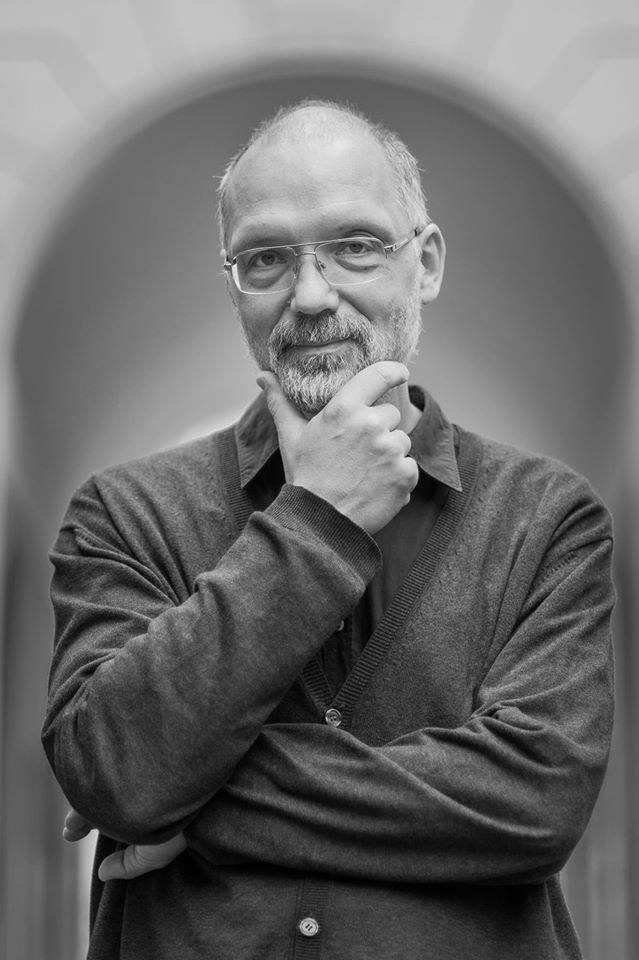
Photo by Krzysztof Sitowski
We have to break through into the market of historical narratives with a true account of what happened during World War II. We have to commemorate the heroism of Poland and an extremely courageous decision on the part of the Polish government to stand up to two totalitarian regimes: Germany and the Soviet Union.
In conversation with Professor Andrzej Nowak, Head of the Department of Eastern European History, Jagiellonian University, Kraków
Why do foreign media perpetuate the phrase “Polish extermination camps”?
There are three major reasons for this. The first is ignorance, which is rampant in Western societies, as they show little or no interest in the history of our region. Taking offence will not solve the problem. We have to fill in this void with educational campaigns. The best way to do this is through mass culture.
The second reason is arrogance. This sense of superiority is shared by some of the political elites in the West who believe that people from the East are worse or downright barbarian. They all seem to believe that if the Germans has set up their camps in the UK or in the US, the English or Americans would have risked their lives to defend their Jewish neighbours. In contrast, the Eastern European yahoos would have denounced the Jews. Such beliefs have racist underpinnings and must be tackled head-on.
There is also a third reason. The one that makes it very difficult to fight phrases such as “Polish camps”. It is concerned not so much with stereotypes or ignorance but with real interests that can be described at several different levels.
What levels?
The first level is concerned with money. As part of the settlement with Holocaust victims, the German government paid out massive damages and made sure that no further claims would come up in the future. However, some people have an insatiable desire for profit and they purport to be the victims in order to pursue the claims against other nations and other societies. Unfortunately, their primary target is Poland, even though, in contrast to Lithuania or Ukraine, there was no organised form of collaboration with the German perpetrators of genocide in Poland.
The second level is concerned with German interest, which is more of a moral than financial nature. The aim of all this is to take the burden of the responsibility off the German memory and share it with other nations. This is one of the key goals of a historical policy that is deliberately pursued by Germany. The policy has also a specific political goal: the renaissance of German domination in Europe and leaving the long shadow of World War II behind. The narrative goes as follows: the Germans may have started the process, but they would have never been successful without the Poles.
There is also a third party in all this, namely Russia (previously the Soviet Union) and its imperial policies. Immediately after World War II, the Kremlin was keen to persuade the world that Poland and other countries in Eastern Europe are not worth sympathising with because what they deserve is Soviet rule. This policy is now being continued. We can see this in the discussion on the Jedwabne pogrom. The story is undoubtedly sad and worth examining in detail, but it has been overly publicised to serve the Russian propaganda. It is no wonder, then, that most of the news about the pogrom come from the Russian press. This is actually easy to interpret: so you see, Polish people are anti-Semites and the perpetrators of genocide, and yet they have the nerve to vindicate the Katyn massacre or other moral transgressions on the Russian part.
How can we fight this more effectively?
We have to break through into the market of historical narratives with a true account of what happened during World War II. We have to commemorate the heroism of Poland and an extremely courageous decision on the part of the Polish government to stand up to two totalitarian regimes: Germany and the Soviet Union. We have to do this through the media and mass culture while gaining as many international partners as possible for the cause; they can join us either for profit or because they share our ideas. After all, we have a lot of friends globally. We have to harness their talent to create an organised system that fights the distorted representations of 20th-century history, with particular emphasis on World War II. Our historical policy has been weak and reactive over the last 27 years. We are able to respond only when the problem has already occurred. There is no denying that we have to dispel the lies, but we have to become more proactive in the long run.
The incumbent government says that historical policy is one of its key objectives. Is there room for improvement in fighting historical lies that affect Poland’s reputation?
To be honest, we need more time to assess the government’s activity. There is no way we can do this after ten months. However, some of the declarations are becoming more tangible. The Ministry of Culture and National Heritage has allocated more money in the budget for historical films. I would be really happy with an epic and Hollywood-like picture about Witold Pilecki, whose achievements command a lot of respect both in Poland and internationally.



